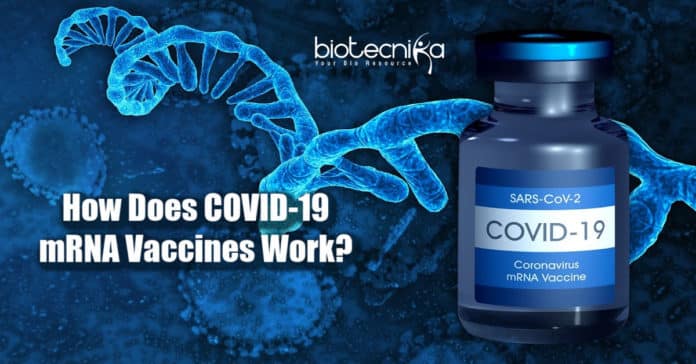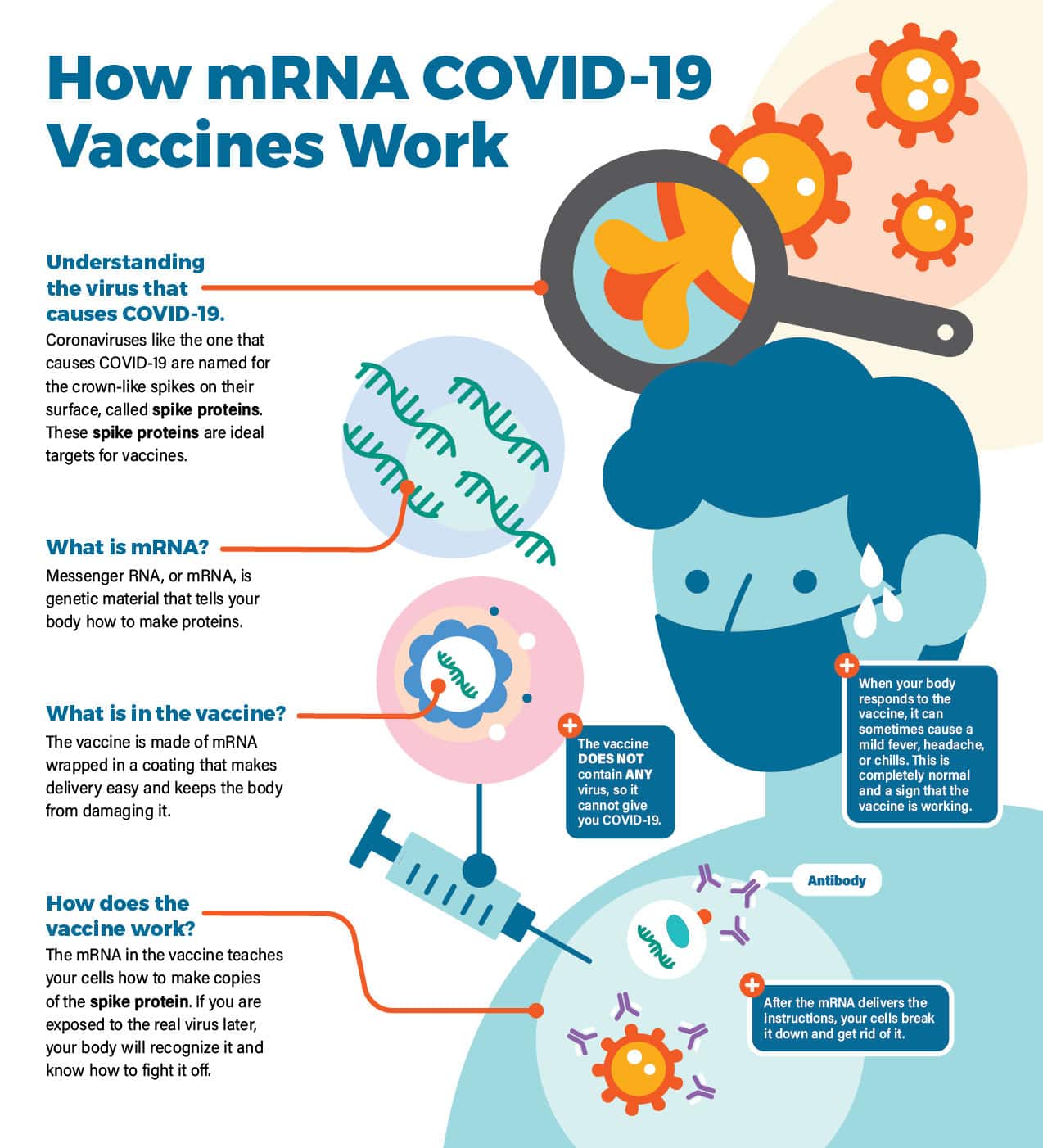
mRNA COVID-19 Vaccines
Messenger RNA (mRNA) vaccines are a few of the first COVID-19 vaccines approved for use in the USA.
- mRNA vaccines are a novel type of vaccine to give a shield against contagious diseases.
New Approach to Vaccines
Several vaccines put a weakened or inactivated form of microbe in our body to activate an immune response. But, mRNA vaccines work differently, it instruct our cells how to synthesis a protein or a part of a protein that activates an immune action inside our bodies. The immune response, which synthesizes antibodies, is what shields us from being affected if the actual virus invades our body.
How does COVID-19 mRNA Vaccines Work
COVID-19 mRNA vaccines instruct our cells to synthesis a harmless piece of “spike protein,” which present on the surface of SARS-CoV-2.
- Initially, SARS-CoV-2 mRNA vaccines are injected into the upper arm muscle. When the mRNA is inside the immune cells, the cells utilize them to synthesize protein pieces. Once the protein piece is synthesized, the cell breaks down the instructions and discards them off the body.
- Following, the cell presents the protein piece on its surface. The immune systems identify that the protein does not belong there and start developing an immune response and produce antibodies, similar to what occurs in real SARS-CoV-2 infection.
- At last, the immune system will learn how to defend against future infection.
- The advantage of mRNA vaccines includes immunity without ever having to risk the severe consequences of getting ill with coronavirus infection (in the case of coronavirus vaccine).
Facts about COVID-19 mRNA Vaccines
mRNA Vaccines can’t cause COVID-19.
-
- mRNA vaccines don’t use a live virus that causes coronavirus infection.
They don’t affect or interact with our DNA.
-
- mRNA never penetrates into the cell nucleus, where our DNA is present.
- The cell breaks down and eliminates the mRNA after it uses the instructions.
COVID-19 mRNA vaccines will be closely assessed for safety
Like all other vaccines in the United States, mRNA vaccines also have been held to the same accurate safety and efficacy criteria. The FDA will approve the vaccines in the U.S only if it fulfills all the safety and efficacy requirements.
mRNA Vaccines Are New, But Not Unknown
Scientists have been researching and working with mRNA vaccines for years. Interest has increased in these vaccines due to the fact that they can be produced in a lab utilizing readily available materials. This implies that the process can be regulated and scaled up, making vaccine development quicker than standard approaches.
mRNA vaccines have been researched previously for flu, Zika, rabies, and cytomegalovirus. As soon as the essential data regarding the virus that causes COVID-19 was offered, researchers started creating the mRNA instructions for cells to construct this spike protein into an mRNA vaccine.
Future mRNA vaccine technology might enable one vaccine to give safety for many diseases, therefore reducing the number of shots required for defense against common vaccine-preventable conditions.
Studies on mRNA for cancer research are also ongoing to trigger the immune system to target particular cancer cells.
Also read:






























